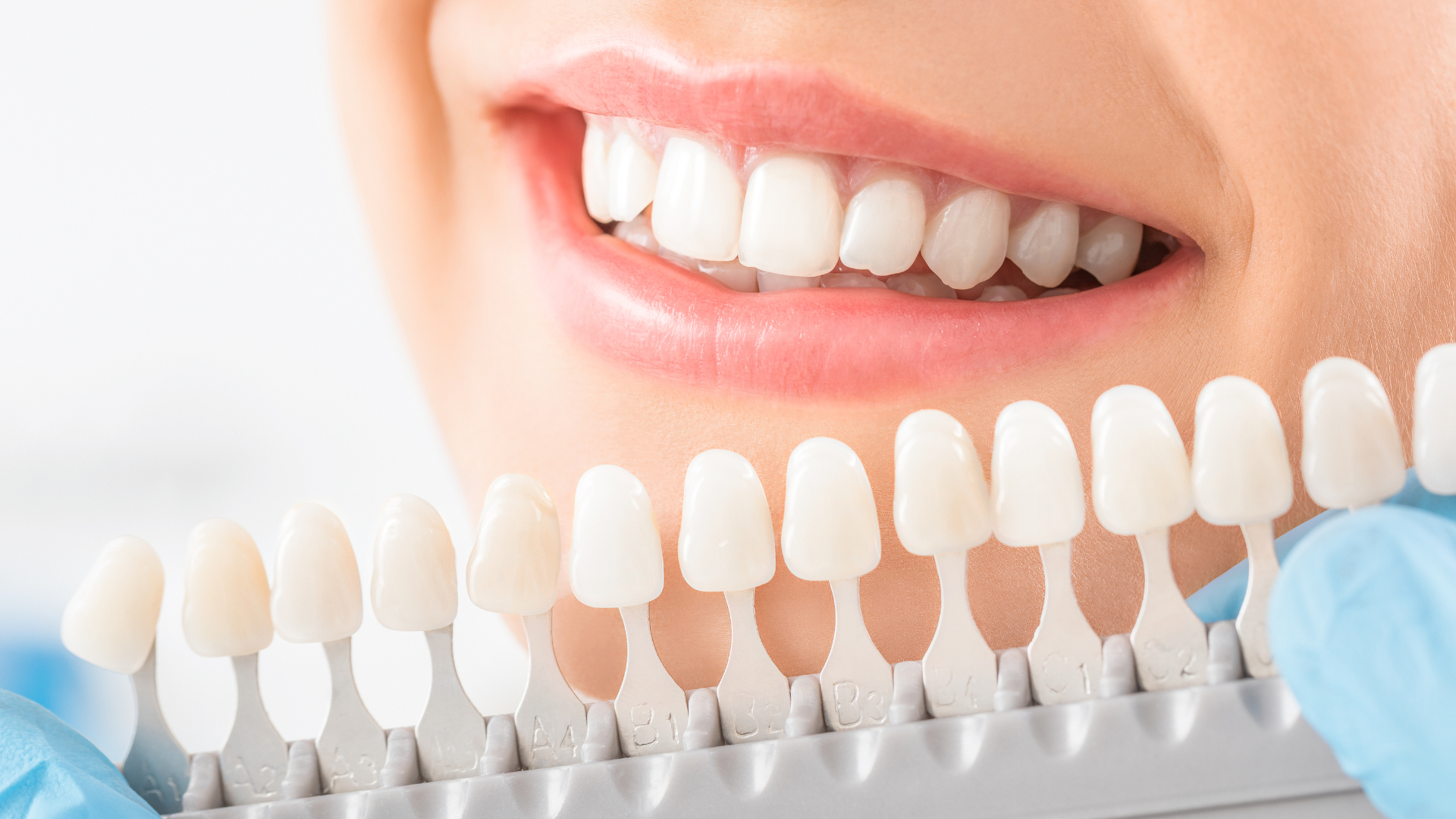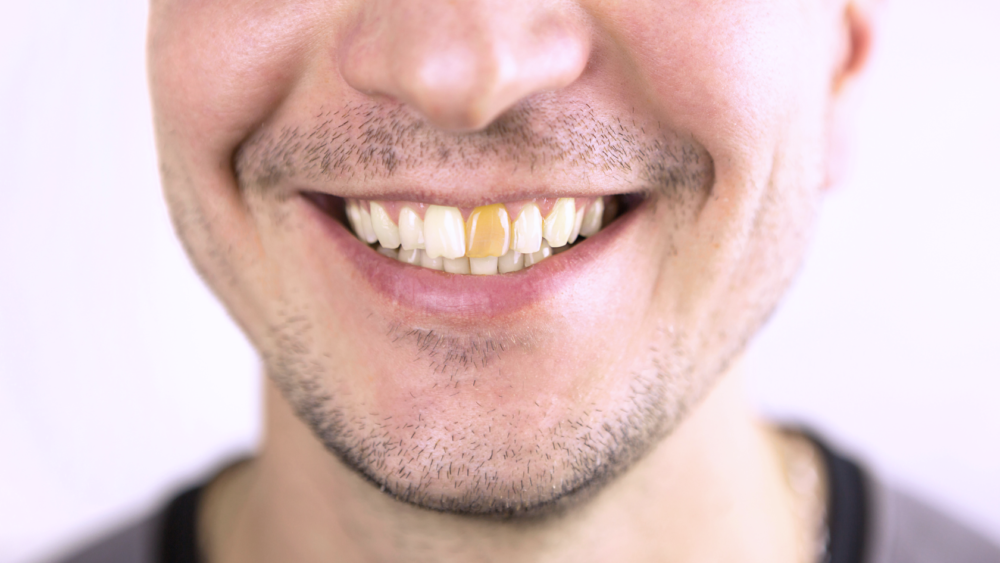
Is Teeth Whitening Safe?
December 28, 2022
Can You Get Rid Of Teeth Stains?
January 25, 2023Gum infections, known as periodontal disease, can be easily missed and have serious consequences. According to the Centers for Disease Control, almost half (47.2%) of American adults over 30 have some form of gum disease, and more than 70.1% of those over 65 do. This condition and dental decay present the two top threats to the health of your teeth and gums. Treatment can stop the progression of gum infection, but you must visit a dentist to get the care you need.
What Causes Gum Infection?
Gum infection can happen from neglected brushing, flossing, and professional dental hygienist cleanings. However, other conditions increase your risk for periodontal disease. These things that increase your risk include:
- Genetics
- Smoking
- Hormonal changes in females from oral contraceptives or pregnancy
- Stress
- Chronic dry mouth
- Immune system compromising conditions, such as AIDS
- Diabetes
The above risk factors raise the chances of having tartar buildup under the gums and promote uncontrolled bacteria growth. If you have the above, you should ensure that you have regular dental cleanings and be uncompromising in your home dental care routine.
How Does a Dentist Spot Gum Infection?
You may not notice some of the signs of a gum infection. They tend to be minor, especially in the beginning. The early stages, when you only have inflammation of the gums, called gingivitis, may only have redness in the gums and a buildup of tartar below the gum line.
Over time, the tartar that accumulates under the gum line traps bacteria there, which multiply to produce infection. Serious gum infections have the following symptoms that you, your dental hygienist, or your dentist may spot:
- Sensitive teeth
- Loose teeth
- Bleeding gums
- Pain when chewing
- Receding gums giving you a “toothy” smile
- Bad breath that does not resolve
If your dentist or hygienist sees that you have signs of gum infection, you should follow their recommendations for treatment.
During an exam, you may have a test with a periodontal probe in which the hygienist or dentist tests your teeth for pockets, indicating advanced gum infection. X-rays and a visual exam of the gums can also spot signs of gum disease. The level of progression of the infection will determine the type of treatment you need.
What Can Happen If Gum Infection Does Not Get Treated?
If you have gum disease, it does not go away on its own. In fact, it can progress over time. The earliest stage is gingivitis. You may not even feel any discomfort or only notice a little blood on your toothbrush.
As gum disease gets worse, it can create pockets between your teeth and gums by wearing away the bone that holds your teeth in place. This can loosen your teeth and eventually cause them to fall out.
How Is Gum Infection Treated?
Treatment for gum infection depends on its severity. Your dentist may have the ability to non-surgically treat the infection. However, if you have a severe case of periodontitis, you may require surgical intervention from a periodontist.
Regular Cleaning for Minor Conditions
If you only have tartar building up under your gums and redness in your gums, regular cleanings may remove the tartar to prevent progressive infection. Plus, regular cleanings prevent you from developing infections in the future.
Deep Cleaning Through Root Planing and Scaling
If you do show signs of infection in your gums, a non-surgical deep cleaning may help to stop the disease. During this deep cleaning, which uses scaling and root planing to remove tartar, the dentist will prevent moderate infections of the gums from becoming severe cases.
Scaling removes plaque and tartar under the gums. Root planing makes the tooth roots smoother and less susceptible to harboring bacteria and tartar. Additionally, the dentist might use antibiotic additives in the treated areas to keep them clean.
Many cases of periodontitis can stop the progression with root planing and scaling. However, deep pockets may need surgical intervention from a specialist in gum infections.
Surgical Interventions
Surgical interventions are only required in the most severe cases. A periodontist performs these surgeries, which may include bone grafts, gum grafts, tissue grafts, pocket reduction surgery, or soft tissue regeneration.
How to Prevent Gum Infection
Once you’ve had gum disease treated, you may still redevelop it in the future if you don’t take care of your teeth and gums. There are a few ways to prevent future gum infections.
First, regular brushing and flossing remove plaque. Getting rid of plaque with thorough brushing protects your teeth and gums from disease. Since tartar forms from plaque, you cannot get tartar building up under your gums if you don’t have plaque.
Second, establish a regular schedule of dental cleanings. At least twice a year, you’ll need professional cleanings from a hygienist. These cleanings remove plaque and tartar that may have formed even if you had good dental cleaning habits. At these visits, the hygienist or dentist might notice signs of early gum disease that you can get treatment for early before you need surgical intervention.
Third, stop smoking if possible. Also, let your dentist know if you have any risk factors. If your dentist knows that you have a higher likelihood of developing gum infections, they will know to keep a closer eye on your gum health.
Finally, if you see blood on your floss or toothbrush, experience pain in your gums, or have unexplained bad breath, visit your dentist for an exam of your teeth and gums. You may have a gum infection that needs treatment before it worsens.
Visit Langley Dental Care to Prevent or Treat Gum Infection
Keeping up with regular cleanings with the hygienist can prevent plaque from turning into tartar and the buildup of the latter that leads to gum disease. Our team can help you to maintain healthy teeth. If you develop a gum infection, trust us to help you stop the progression with gum infection treatments to help you avoid tooth loss that comes from advanced cases. Contact our team at Langley Dental Care to set up a visit for an evaluation of a gum concern or regular cleaning and exam.



